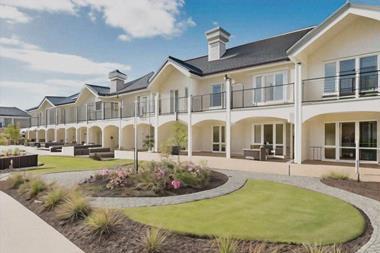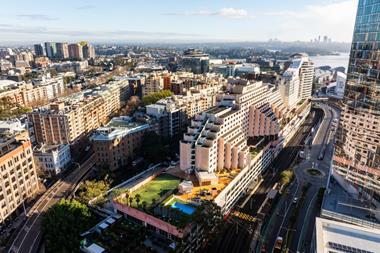CHINA - Domestic investors took an increasing larger share of the real estate investment market in China in the first half of the year, a report by property consultants DTZ shows.
The ‘Real Estate Investment in China' research report reveals that, of all major en bloc transactions in H1 2008, only 22% were deals involving foreign investors.
In contrast, DTZ claimed last year that foreign investors were responsible for 82% of en bloc deals during the whole of 2006.
The number of deals by foreign investors actually declined by 75% in the first six months of 2008, with only four transactions recorded, compared with 17 during the same period last year.
The findings appear to confirm expectations that the Chinese government's regulatory changes would dampen foreign investment activity.
Francis Li, head of investment for DTZ in North Asia, believes the shift in dominance may be because of the strict macro-policies that China enforces on foreign investors.
"The macro-control policies posed greater difficulties for foreign investors participating in the mainland market, increasing both the time and uncertainty for their investment plans to be granted approval through a more complicated procedure," she said.
"Domestic investors have been subjected less to this kind of restriction and they enjoyed a smoother transaction process."
But the DTZ report showed that China's investment market experienced an overall surge in activity this year, as transactions and property prices have increased significantly.
Site transactions increased by 71% year-on-year from 148 in the first half of last year to 254, while en-bloc transactions rose by 106.5% from 31 to 64 over the same period.
"There was a total of 318 major transactions recorded during the first six months of 2008 in mainland China, representing an increase of 77% year-on-year, and the total consideration increased by 86% year-on-year from $13.37bn (€10.67bn) to $24.93bn," Li said.
"These figures show that the appeal of the mainland Chinese investment market remained, whilst sellers are prepared to dispose at suitable market levels of pricing."
Of the 318 major transactions, 80% were site transactions and 20% were strata-title or en-bloc transactions.
DTZ found that investors are increasingly turning to second and third tier cities like Dalian, Chongqing, Wuhan, Shenyang and Tianjin to look for new, cheaper investment opportunities, as activities in some first tier cities like Shanghai and Beijing have slowed down compared to the same time last year.
Investors were most attracted to mixed-use and residential projects, followed by office and retail projects. Total transactions in residential projects increased dramatically by 562.5% year-on-year, while deals involving mixed-use projects were up 6.3% year-on-year.
En-bloc transactions for residential projects jumped up 155% year-on-year, which, according to Li, could be a reflection of China's macro-policies, which have triggered more involvement of major domestic developers in projects across the country.
"Small-sized and cash-strapped developers have found it more difficult to borrow money, and so there was a stronger need for them to sell their properties at a more flexible price in order to increase cash flow, and buyers with more funding profited from the bargains that result.
"This is one factor that boosted in particular the sales of en bloc residential properties during the first half of this year," said Li.












